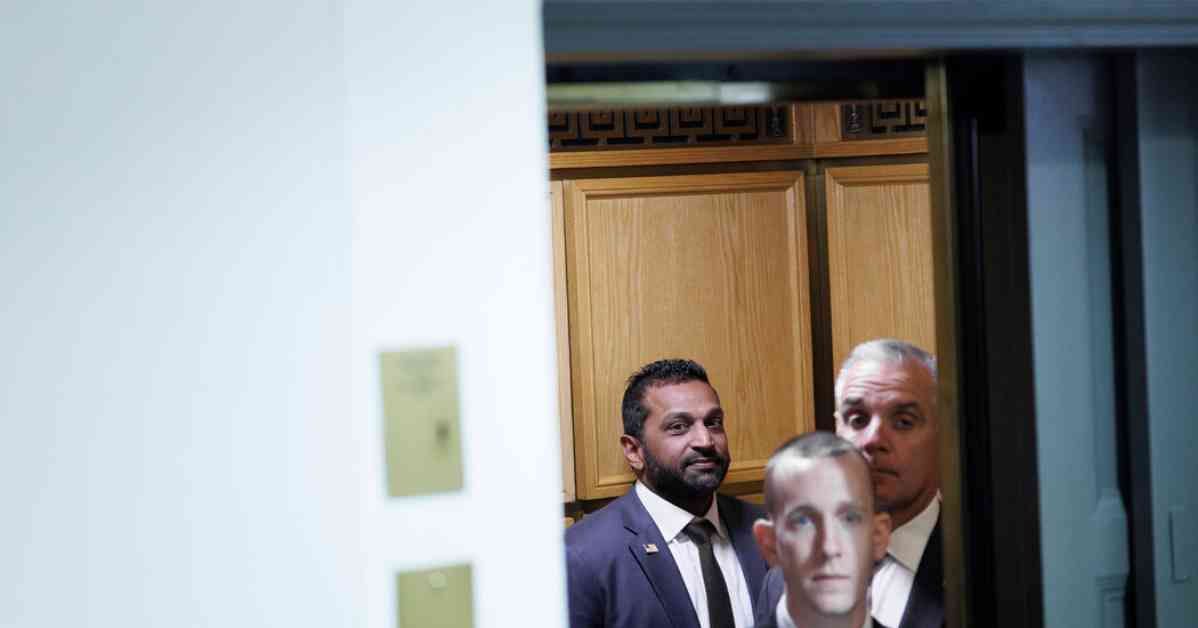Kash Patel Asserts Fifth Amendment Rights in Trump-Related Case
On a chilly January morning in 2025, the corridors of power in Washington buzzed with speculation and intrigue as Kash Patel, a former federal prosecutor and congressional aide, invoked his Fifth Amendment right before a grand jury. The case in question revolved around whether former President Donald Trump mishandled national security secrets by refusing to return classified documents.
The act of “taking the Fifth” is a familiar trope in movies and TV shows, often signaling a pivotal moment in a character’s legal battle. However, in real life, the decision to assert one’s right against self-incrimination can have far-reaching consequences, especially for public figures like Patel.
While the move to plead the Fifth may raise eyebrows and invite scrutiny, legal experts emphasize that it is not an admission of guilt. In fact, many attorneys advise their clients to assert this right when facing uncertain circumstances, such as unclear investigative objectives.
Democratic Senators Express Concerns
Following Patel’s decision to remain silent before the grand jury, Democratic senators wasted no time in expressing their concerns about his testimony. They highlighted the potential impact of his invocation of the Fifth Amendment during his confirmation hearings for the position of F.B.I. director.
Lawmakers demanded access to any pertinent information contained in a report by Jack Smith, the special counsel investigating Trump. Of particular interest was the section of the report that remained classified, detailing the discovery of sensitive documents at Trump’s Florida residence.
The secrecy surrounding this report underscored the delicate nature of the case and the implications of Patel’s involvement in a matter of national security. The stakes were high, and every word spoken behind closed doors could have far-reaching consequences for Patel’s future career prospects.
Unprecedented Twist in Political Drama
For a seasoned professional like Patel, who had navigated the intricate web of Washington politics for years, the decision to assert his Fifth Amendment rights marked an unprecedented twist in his career trajectory. From his days as a public defender to his tenure as a congressional aide, Patel had always been a figure shrouded in intrigue and controversy.
As the public awaited further developments in the case, the echoes of Patel’s silence reverberated through the marble halls of power, sparking intense debates and speculation about the implications of his actions. Would this pivotal moment redefine Patel’s legacy, or would it fade into the annals of political history as just another chapter in a larger narrative of power and intrigue?
As the dust settled on the dramatic events of that January morning, one thing was certain: Patel’s decision to take the Fifth had injected a new layer of complexity into an already convoluted political drama. The implications of his actions would reverberate far beyond the confines of the grand jury room, shaping the future of not just one man, but the entire landscape of Washington politics.

